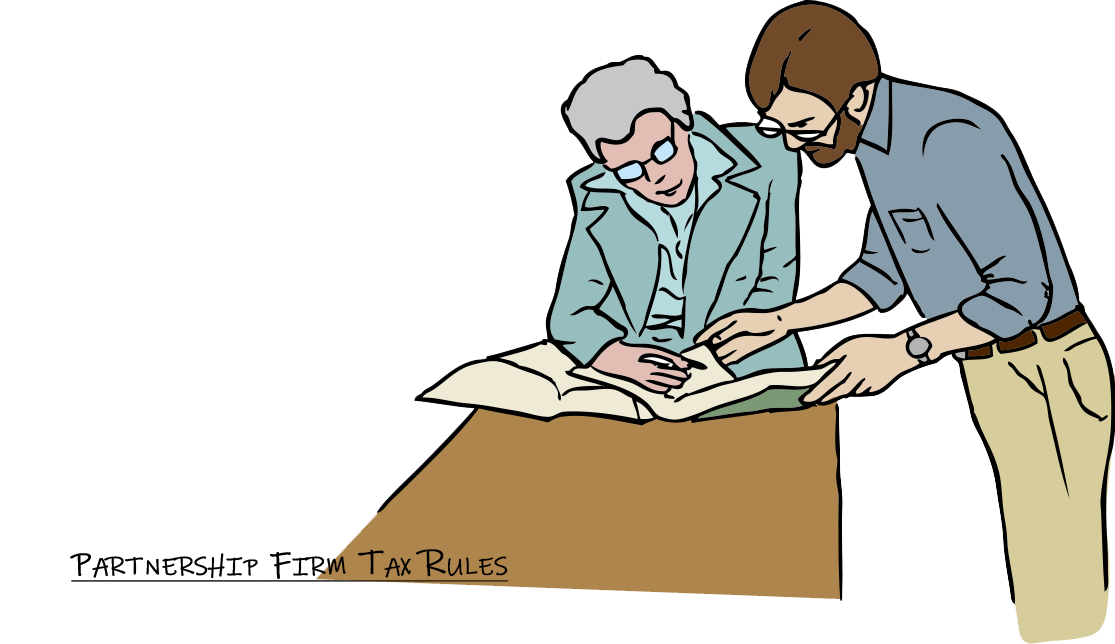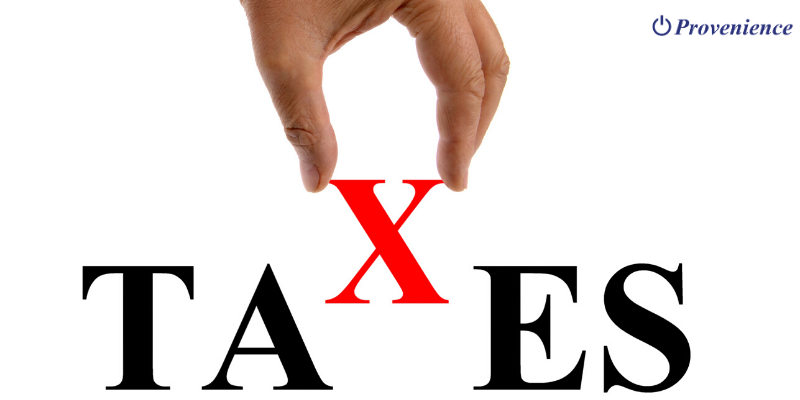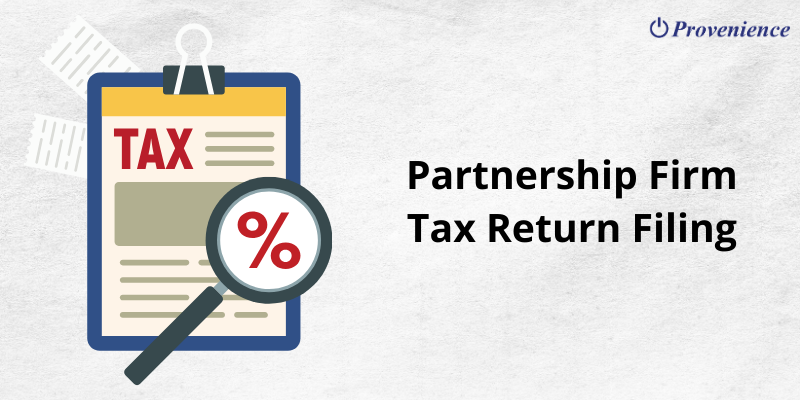For taxation, a partnership firm is a separate legal entity. Also, registered and unregistered firms are treated the same. Today, we will talk about the partnership firm tax rules and things that you should know with respect to taxation of your firm.
Section 2(23) of the Income Tax Act, 1961, defines the terms ‘firm’, ‘partner’, and ‘partnership’ as defined in the Indian Partnership Act, 1932. Section 4 of the Partnership Act, 1932, provides a definition of these terms as follows:
“Partnership” is the relation between persons who have agreed to share the profits of a business carried on by all or any of them acting for all.
Persons who have entered into a partnership with one another are called individually, “partners“.
Also, these partners are collectively called “a firm“.
Further, the name under which their business is carried on is called the “firm-name“.

Partnership Firm Tax Rules – Section 184 (Income Tax Act, 1961)
According to this section, the income tax department will consider a firm as a ‘firm for assessment under this Act’, provided:
- There is an instrument to evidence the partnership
- The instrument specifies the individual shares of the partners
What is an instrument of partnership?
This is the written partnership agreement that all partners sign and certify. This instrument can evidence the partnership according to the Income Tax Act, 1961.
- If the firm has dissolved before filing the returns, then all persons who were partners before the dissolution must sign the instrument.
- If a partner has died, then the legal representative of the deceased partner must sign the instrument.
A minor cannot sign the instrument of partnership.
When should you submit the instrument of partnership?
According to Section 184(2) of the Income Tax Act, 1961, you must submit a certified copy of the instrument of partnership along with the income tax return of the previous year corresponding to the current assessment year. You need to submit it during the first assessment as a firm.
Also, according to Section 184(3) of the Act, the income tax department will assess your firm every subsequent year in the same capacity. This is provided there is no change in the constitution of the firm and also the shares of the partners. In case of any change, you must submit a revised instrument of partnership accordingly (Section 184(4)).
Partnership Firm Tax Rules – What is a change in the constitution of a firm?
According to Section 187 of the Income Tax Act, 1961, there are two ways in which the constitution of a firm can change:
First Way
IF
One or more partners cease to be partners in the firm
OR
The firm admits one or more new partners
AND
One or more persons who were partners in the firm before the change continue as partners after the change
THEN
The constitution of the firm is said to be changed
Second Way
If all the partners continue but their shares change, then the constitution of the firm changes.
Section 188 – Succession of a firm by another firm
There can be times when a firm is succeeded by another firm. Since it is not merely a change in the constitution of the firm, separate assessments are needed for both firms. Section 170 of the Act states that:
- The predecessor firm is assessed on its income prior to the transfer of ownership
- The successor firm is assessed on its income after the transfer of ownership
Section 188A – Joint and Several Tax-Liability of Partners
According to this section, all partners of a firm in a financial year are jointly and severally liable to pay the tax or penalty or any other sum payable for the relevant assessment year. Further, in case of the death of a partner, his legal representative holds the joint and several liability.
Partnership Firm Tax Rules – Dissolution or Discontinuation of Business of a Firm
This section talks about the tax implications for dissolved firms or those firms who have discontinued their business:
189(1)
The Assessing Officer will assess the firm on its total income assuming that no such discontinuance or dissolution took place. Also, all provisions regarding the levy of a penalty or any other chargeable sum will apply.
189(2)
During the proceedings, if the Assessment Officer or the Deputy Commissioner/Commissioner (Appeals) finds the firm guilty of any acts under sections 271-275, they can impose a penalty on such firms.
189 (3)
All persons who were partners in the firm at the time of dissolution or discontinuance of business are jointly and severally liable to pay the tax or penalty or any other sum payable. Also, in case of the death of a partner, his legal representative holds the joint and several liability.
189(4)
If the firm dissolves or discontinues after any such proceedings have begun, then the proceeding can continue for the persons referred in 189(3) above.
Understanding Book Profit
Book Profit is the net profit of the firm after taking all provisions into account. It is calculated as follows:
[Profit according to the Profit and Loss Account] – [Incomes credited under the P&L Account but treated under other income heads] + [Payments like salary, commission, bonus, etc. already paid to the partners and debited to the P&L Account] + [Interest on capital given to all partners if it exceeds 12% simple interest per annum]
Partnership Firm Tax Rules – Tax Rate
Finally, the income of the partnership firm is taxed at 30% + surcharges + cess.
Summing Up
We hope that this article provided clear insights into the partnership firm tax rules. While every year, the income tax department makes some changes to certain rules, it is prudent to talk to your tax consultant before filing the returns. Good Luck!














